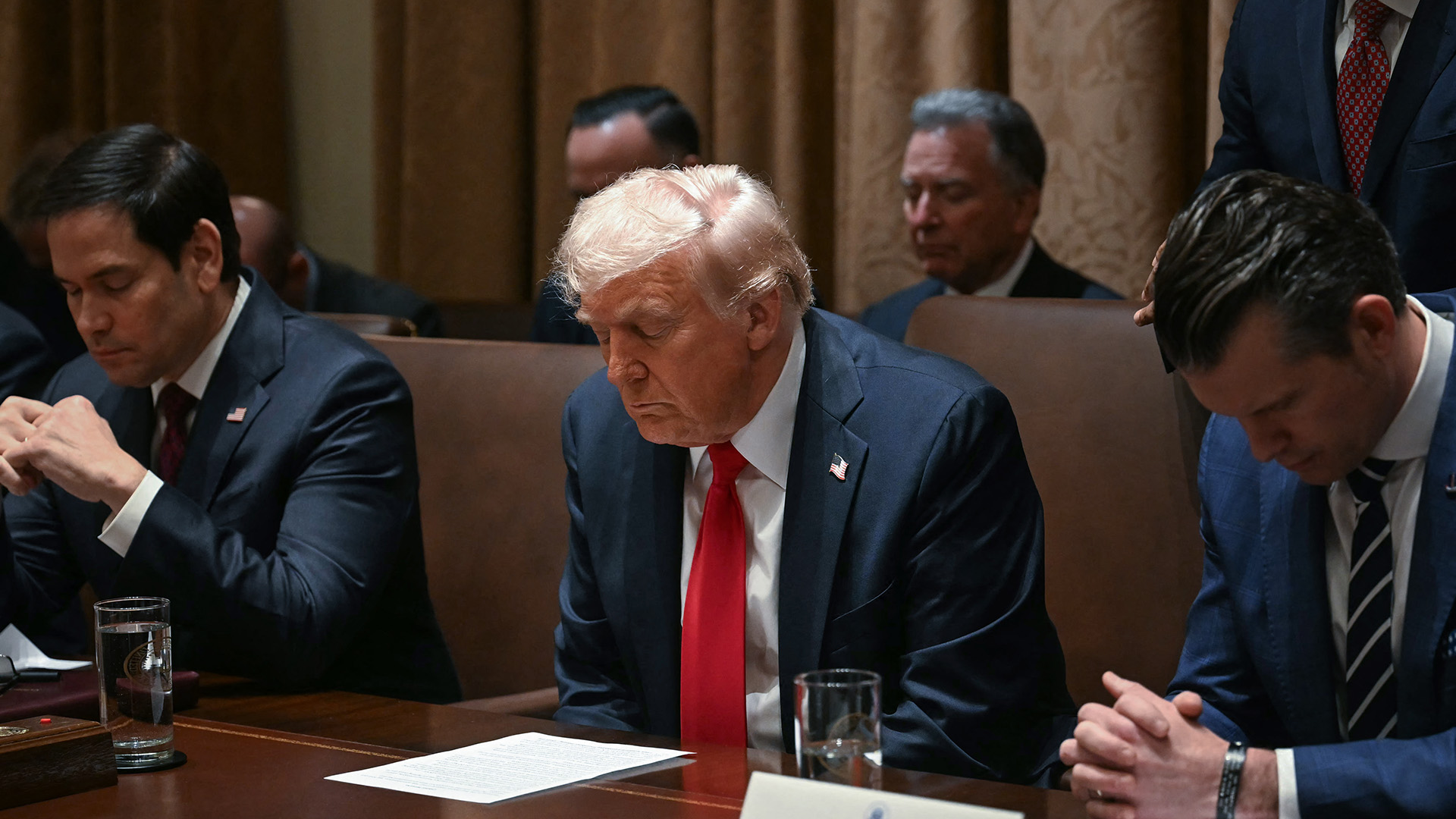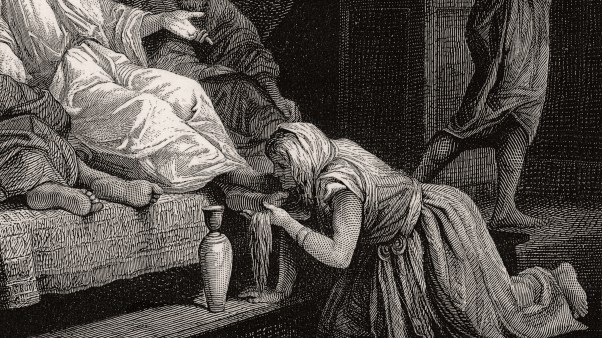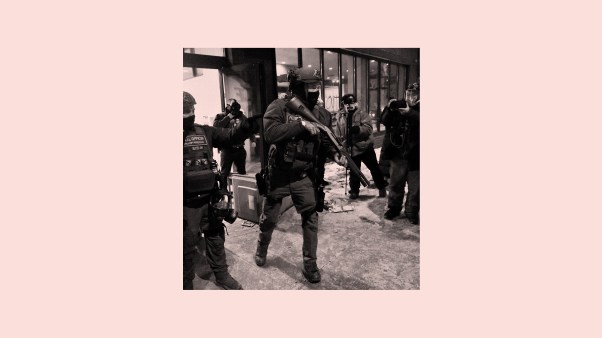In an address at the Museum of the Bible in Washington, DC, on September 8, President Donald Trump launched another in a fairly long line of religious projects, the America Prays initiative.
Next year, “we will celebrate 250 years since that Declaration was signed,” Trump said in his address. “As part of the grand commemoration … we’ve invited America’s great faith communities to pray for our nation, for our people, and for peace in the world.”
Initiatives like this aren’t unusual in the US—you don’t have to search long to find examples of presidents, religious leaders, or celebrities making similar pronouncements, encouraging Americans to join them in praying for the nation and its people. But this proclamation is different for several reasons.
For starters, Trump’s America Prays initiative starts with a clear and simple ask: “that 1 million Americans would dedicate one hour a week to praying for our country and our people.”
For Christians and people of faith more broadly, this isn’t a hard goal to argue with. We’re already commanded to pray—humbly, lovingly and unceasingly. According to recent research, 44 percent of American adults already pray daily. That’s over 100 million, and it’s not a leap to ask that 10 percent of those would weekly devote time (if they aren’t already) to focus their prayers toward the health of the US.
But Trump’s call to action takes this a step further, encouraging folks to find 10 people to meet with each week to join in this effort, and, in what might be one of the most ecclesiastical expressions of this administration’s call to “defend our American values of faith,” the White House website now lists a handful of resources to help aid your prayer life, including an explainer of the ACTS model, weekly prayer challenges, and affiliate mentions of Hallow and Pray.com.
It’s a striking move to be sure. Since the nation’s inception, prayer has been a fixed institution, both procedurally within the government and as a righteous rallying cry to unify hearts and minds toward the common good. But the America Prays initiative is something a bit more pointed, more thoroughgoing in its aims to further catechize an American public that is purportedly increasingly religious.
In addition to the ACTS model, exhortations to partake in intercessory prayers for leaders, and recommendations for prayer apps, there is a long-form document offered as a resource called Prayer and Proclamations Throughout American History. The prayers and proclamations resource contains 17 prayers, sermons, and proclamations from historically notable American figures, including leaders like George Washington, Abraham Lincoln, Martin Luther King Jr., Billy Graham, and George W. Bush, among others.
The prayers and pronouncements are ordered chronologically, beginning with an invocation made in 1607 for the settlers who would later establish Jamestown Colony, and ending in 2001, with a prayer for the victims of 9/11.
The earliest prayers and sermons included—the very first being from 1607—focus on thankfulness for God’s provision, petitions for protection, and hopes for strength as early settlers labored under the vision of manifest destiny as a divine opportunity to bring Christianity to the new world. While these sentiments—thankfulness, protection, conquest—are throughlines in many of the pieces, you can see the tenor change a bit as the sermons move from the 17th century to the present day.
Due to (or despite) their historical contexts, past prayers and sermons offer us much in the way of guidance, spiritual formation, and visibility into both the hopes and anxieties of people from history. This is a rich collection as well as a testament to the oratory and writing skills of people that have seen the United States through some of its most significant and most formative moments.
But this document serves another purpose—to demonstrate a picture of what values the current administration seems to hope will characterize the United States.
Yet, it is incomplete. There are a number of biblically grounded, thoughtfully considered prayers and remarks here, but many aren’t included in full. One prayer like this is written by Abiel Leonard, crafted for Washington’s army during the Revolutionary War. The excerpt is short:
O my God, in obedience to the call of thy providence, I have engaged myself, and plighted my faith, to jeopardy my life in the high places of the field in the defense of my dear country and the liberties of it acknowledging thy people to be my people, their interest my interest, and their God to be my God. … And I desire now to make solemn dedication of myself to thee in it through Jesus Christ presenting myself to thy Divine Majesty to be disposed of by thee to thy glory and the good of America.
… Teach, I pray thee, my hands to war, and my fingers to fight in the defense of America, and the rights and liberties of it! Impress upon my mind a true sense of my duty, and the obligation I am under to my country! …
… Hear me, O my God, and accept of those my petitions through Jesus Christ, to whom with thee, O Father, and the Holy Spirit, one God, be glory, honor and praise, forever and ever. AMEN.
While this excerpt alludes to Psalm 144:1, “Praise be to the Lord my Rock, who trains my hands for war, my fingers for battle,” Leonard’s prayer ends on a rather different note, one not included in the prayers and proclamations document:
And grant, O Lord, that the inhabitants of Great-Britain may arise and vindicate their liberties; and a glorious reunion take place between them and thy people in this land, founded upon the principles of liberty and righteousness.
While other prayers in the document evoke warfare to fully rid the world of evil, a missing portion of Leonard’s prayer sees the ideal outcome of conflict as reconciliatory, a “glorious reunion.”
Leonard’s whole prayer is redemptive, not the somewhat imprecatory missive it appears to be in the White House’s excerpt. It’s a truly Christian look at what it is to see the enemy, even an enemy nation, as a potential brother.
Number nine is John Quincy Adams’s Independence Day Address, 1837. This speech is a very long one, and the prayers and proclamations resource lifts passages focusing largely on Adams’s belief that the US was a uniquely valuable conduit through which God’s will could be reified on earth: “that it laid the cornerstone of human government upon the first precepts of Christianity,” portraying the inhabitants “as a civilized, religious, and Christian people.”
But the full Newburyport oration looks deeper. Adams insists that while civil government is a crucial guardian of social order, spiritual principles and human rights supersede it:
By the affirmation that the principal natural rights of mankind are unalienable, it placed them beyond the reach of organized human power; and by affirming that governments are instituted to secure them, and may and ought to be abolished if they become destructive of those ends, they made all government subordinate to the moral supremacy of the People.
While the White House excerpt is largely a recognition of government as a means of executing God’s will, the fuller oration reminds us that the government is answerable to the spiritual ordering of things and the will of the people—not to the prerogatives of the state.
The final entry documents George Bush’s remarks on the National Day of Prayer and Remembrance, delivered just two days after 9/11. The document includes Bush’s admonition to “answer these attacks and rid the world of evil,” but it does not include Bush’s praise: “We have seen our national character in eloquent acts of sacrifice.” It also doesn’t reflect his harkening back to one of his predecessors: “Today, we feel what Franklin Roosevelt called the warm courage of national unity. This is a unity of every faith, and every background.”
Bush goes on:
In this trial, we have been reminded … that our fellow Americans are generous and kind, resourceful and brave. We see our national character in rescuers working past exhaustion … in thousands of citizens who have asked to work and serve in any way possible.
Even Bush recognized that our national character is not in our power or in how quickly we are able to deliver retribution, but in the sacrificial love we exhibit in the service of helping those in need, even at great risk to ourselves.
But a prayer by Martin Luther King Jr. may be the most powerful in elucidating the true character of a Christian nation, and what prayers proceeding from this character could embody.
King’s prayer includes both a confession to God that we have not loved our neighbor enough, have not gone the extra mile, that our history is “an eternal revolt against [God],” as well as a plea for forgiveness.
King also prays:
We realize that we stand surrounded with the mountains of love and we deliberately dwell in the valley of hate. We stand amid the forces of truth and deliberately lie; We are forever offered the high road and yet we choose to travel the low road. For these sins O God forgive. Break the spell of that which blinds our minds.
This is a convicting message—illuminating the ways that we, individually and collectively, are prone to walk directly into wrongdoing, often despite being surrounded by opportunities to make the right choice instead. What’s omitted here, though, is King’s clear and compelling call to action: “Help us to work with renewed vigor for a warless world, for a better distribution of wealth, and for a brotherhood that transcends race or color.”
While the America Prays initiative website speaks to the importance of national character, its decision-making reveals a character that the current powers seem to hope the US would embody. An idealized future of the United States for this administration is not one where peace is achieved through reconciliation and Christlike humility, but rather where “peace” is realized through the perpetuation of the United States as an unstoppable and unassailable picture of military might. Not just a nation, but an empire with unlimited firepower, able to, according to Trump, “wipe [countries] off the face of the earth.”
Many of the figures included in the document—most especially the clergy quoted—see war and bloodshed not as intrinsic to our character, but as something to be avoided at all costs, as failings that Christians should be ardently at work to see dissolved.
How, then, should Christians pray? Despite its omissions, the Prayer and Proclamations Throughout American History is a helpful guide, exhorting people of faith to give thanks to God for his provision, to recognize their transgressions against him and against their fellow man, to intercede on behalf of their neighbors, their communities, and their government officials for God’s guidance, and to see the person of Jesus Christ shared.
But the omissions lend additional color to how we petition God: We ask him to burden us with our failures to our neighbors, to make us deeply empathetic, to move us to faithful action, and above all else, to make us instruments of peace—characterized not by strength or might, but by humble reconciliation with those we share this nation with.
Ashley Ekmay is insights analyst at Christianity Today.









